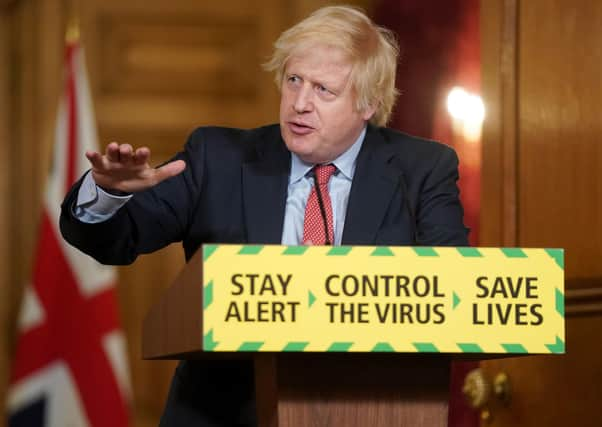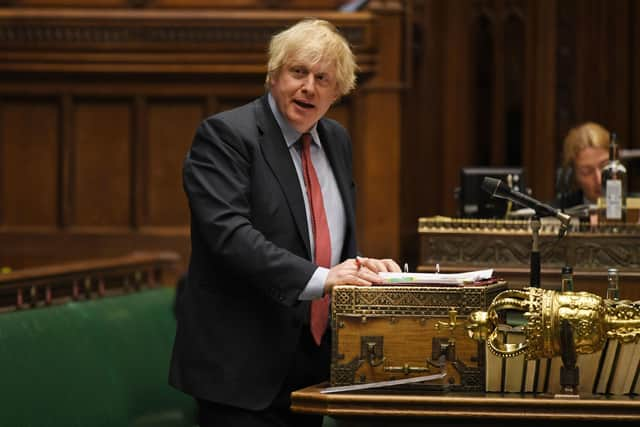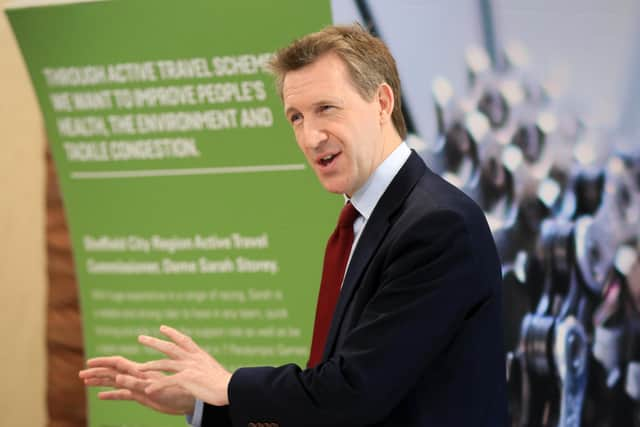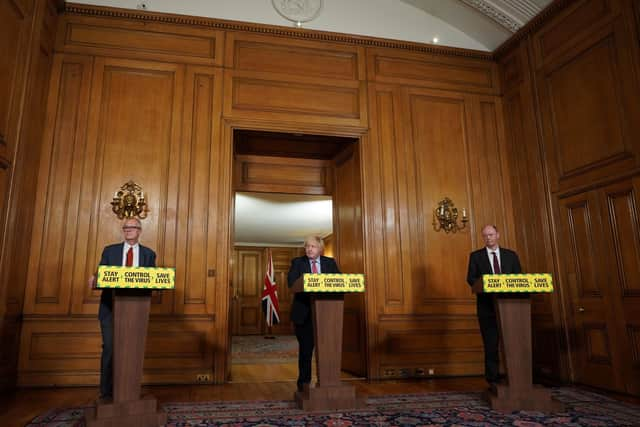Why pandemic recovery must be led my metro mayors and councils – David Blunkett


Margaret Thatcher was Prime Minister and, at least in my neck of the woods, her government was deeply unpopular.
And as leader of the City of Sheffield for the previous seven years, I’d witnessed first-hand the devastating effect of cuts in public expenditure and their impact on local communities.
Advertisement
Hide AdAdvertisement
Hide AdBut one thing you could say about the Thatcher administration was that they had a plan – they knew what they were doing and, on the whole, they managed to get their way.


Contrast this with 2020 and the present Government’s “make it up and muddle” during the Covid-19 lockdown.
Don’t get me wrong. This has been one of those rare, major challenges that has affected the whole of the globe and would have challenged any government of any persuasion.
That is why so much slack, including by me, was given to the Government in those early stages.
Advertisement
Hide AdAdvertisement
Hide AdBut, as information emerges, greater light is shed on early decision-making and the evidence of almost weekly cock-ups that you can’t help but think that someone, somewhere should get a grip. This isn’t, however, purely about the last three months, difficult as they have been. As it happens, some of the problems the present Government are experiencing go back 10 years.


On June 22 2010, the then Chancellor of the Exchequer, George Osborne, stepped to the Dispatch Box to announce billions of pounds of cuts in public expenditure over the years ahead.
That austerity programme not only affected so many elements of our public service but the capacity to respond also was the precursor to the catastrophic changes in the structure of the NHS, brought in by Andrew (now Lord) Lansley in the 2012 legislation.
For younger readers, this was a structural change that cost an estimated £3bn to implement and has since been at least partly unwound.
Advertisement
Hide AdAdvertisement
Hide AdUp to that point, each region of England had a Public Health Observatory, a Director of Public Health and disease-control teams.


This also included a facility for rapid response for test and trace, overseen by a national body entitled the Health Protection Agency.
Among other things, responsibility lay with this agency to monitor the emerging threat of infectious disease. The Lansley changes merged this into a newly created central body, Public Health England.
While, at local level, directors of Public Health were restored in part to the role they previously played, their budgets were slashed and the capacity to act curtailed.
Advertisement
Hide AdAdvertisement
Hide AdThis top-down approach, with local government’s finances decimated, was a clear recipe for disaster.
Even Andrew Lansley admits the draconian cuts in resources – estimated to be a reduction in public health spend of £815m in real terms since 2015 – impacted on the ability of all those involved to react to the present pandemic outbreak.
The pain and the risk had been transferred to local government, but the decision-making processes have been heavily centralised in the new Public Health England structure.
Not only did this lead to confusion but also a total lack of clarity who about who was responsible for what and where the power to act really lay. Local government had already lost confidence as well as funding.
Advertisement
Hide AdAdvertisement
Hide AdTaking new initiatives was seen not only to be risky but, because they were underfunded, to put other services at risk.
No wonder, therefore, that what would have been second nature for local government 40 years ago – using initiative and getting on with testing and tracing back in February – was a non-starter.
So here we are, with the former head of TalkTalk in charge of test and trace and with Serco and Sitel responsible for implementation.
But let’s go back to February 18 and the minutes of Sage. It was reported by Public Health England they had the capacity, believe it or not, to deal with an outbreak involving five people and 800 potential contacts to trace. This, they said, could be scaled to 50 infections and 8,000 traces.
Advertisement
Hide AdAdvertisement
Hide AdAt a local level across the country, men and women, rather than technology, could have been mobilised to do the job.
And my point? It is absolutely crucial that in the months ahead we start to restore confidence in local government.
It will, of course, cost money. Central government should be challenged to fund collaborative programmes but, waiting for them to do it is frankly like waiting for Godot.
We’ve waited for the protective equipment, we’ve waited for test and trace, we’ve waited for the specific advice in a whole range of areas of our lives as we unlock.
Advertisement
Hide AdAdvertisement
Hide AdOne thing is absolutely clear. While central government will have to take responsibility, because only they can, for raising the eye-watering sums needed for recovery and regeneration of our economic and social life, it will be at local level that the plans must now be put in place. This time we cannot wait.
It will entail local mayors, council leaders and the business community taking the initiative, working together with the voluntary sector, to put together ambitious and coherent programmes.
Linked with further and higher education, and with specific projects to offer young people education, training and the chance of a job, we must restore confidence across our region. Confidence, collaboration and clarity of purpose must be our watchwords.
Yorkshire common sense and Yorkshire grit will get us through and help us build for a better tomorrow, but it will only happen if we do it together.
David Blunkett is a Labour peer and former Home Secretary.
Advertisement
Hide AdAdvertisement
Hide AdEditor’s note: first and foremost - and rarely have I written down these words with more sincerity - I hope this finds you well.
Almost certainly you are here because you value the quality and the integrity of the journalism produced by The Yorkshire Post’s journalists - almost all of which live alongside you in Yorkshire, spending the wages they earn with Yorkshire businesses - who last year took this title to the industry watchdog’s Most Trusted Newspaper in Britain accolade.
And that is why I must make an urgent request of you: as advertising revenue declines, your support becomes evermore crucial to the maintenance of the journalistic standards expected of The Yorkshire Post. If you can, safely, please buy a paper or take up a subscription. We want to continue to make you proud of Yorkshire’s National Newspaper but we are going to need your help.
Postal subscription copies can be ordered by calling 0330 4030066 or by emailing [email protected]. Vouchers, to be exchanged at retail sales outlets - our newsagents need you, too - can be subscribed to by contacting subscriptions on 0330 1235950 or by visiting www.localsubsplus.co.uk where you should select The Yorkshire Post from the list of titles available.
Advertisement
Hide AdAdvertisement
Hide AdIf you want to help right now, download our tablet app from the App / Play Stores. Every contribution you make helps to provide this county with the best regional journalism in the country.
Sincerely. Thank you.
James Mitchinson
Editor
Comment Guidelines
National World encourages reader discussion on our stories. User feedback, insights and back-and-forth exchanges add a rich layer of context to reporting. Please review our Community Guidelines before commenting.